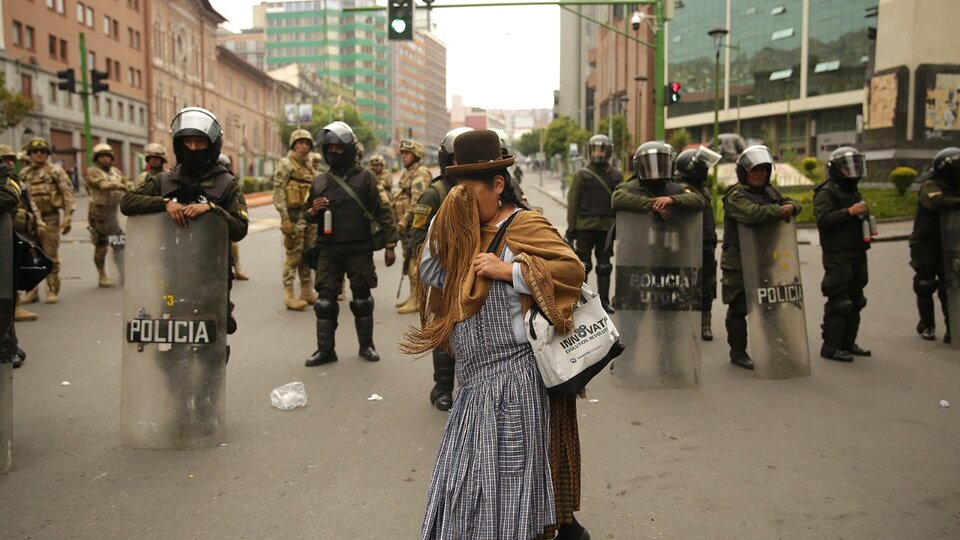
[ad_1]
The Bolivian government investigation, led by Luis Arce, on what happened in the November 2019 coup against Evo Morales continues to elicit political and diplomatic backlash. It was now the turn of the European Union (EU), which rejected having been part of the negotiations which forced the departure of Morales, after the European supranational body rsupport the OAS report which claimed that there had been election fraud, which was recently rejected by a judicial inquiry.
On July 27, the Attorney General of Bolivia, Juan Lanchipa, presented the findings of an investigation commissioned to the Deep Tech Lab Research Group of Bisite, of the General Foundation of the University of Salamanca, which confirms the non-existence of the Data manipulation. Suspicions of fraud in the 2019 election arose around the rapid count system and the OEA prepared a quick report that spoke of fraud, which allowed the opposition and military forces to move forward with the coup..
The EU as well as the diplomatic missions of the member states of this body in Bolivia on Thursday rejected “categorically” the accusations of having participated in a “conspiracy to prepare a coup in 2019”. Something that was recently suggested by the president of the Bolivian Chamber of Senators, Andrónico Rodríguez, who called for an investigation to be opened into the role of certain diplomatic representations.
The EU statement said that in November 2019, amid the political and social crisis that Bolivia experienced after the failed elections that year, this body “helped facilitate meetings, led by the Church, involving key actors from all parties“, including the ruling Movement for Socialism (MAS).
The objective of these meetings, according to the EU, was “to help pacify the country in times of extreme tension by providing a platform for dialogue in order to prevent further violence and end the crisis that has shaken the country”.
After the EU statement, opponents took the opportunity to criticize Arce
The EU statement revived the opposition sectors to return to the accusation concerning the alleged fraud denounced by the OAS, which had already been questioned by the Center for Research in Economics and Politics (CEPR), a prestigious research center based in Washington.
Carlos Mesa, former president and presidential candidate defeated in the last elections, echoed the declarations of European states and considered that the declaration meant “a harsh message” for the Arce government. “Deny the existence of a “coup” and ratify the democratic objective of the November 2019 meetings“Said Mesa, seeking to clean up her image in view of her passive stance in front of the putschist government of Jeanine Añez.
In the same tone, ex-president Jorge “Tuto” Quiroga spoke, encouraged to qualify the institutional irruption of 2019 as a “coup stage” mounted by the MAS “ and demanded that the EU “support its 2019 fraud report”, then prepared by the OAS.
Quiroga was president of Bolivia for a brief period between 2001 and 2002 and in the last election he decided to drop his candidacy, which had no intention of voting, in favor of Mesa. “No matter the risk that the MAS directly accedes to the government on October 18, I must do everything to avoid it,” said the former president when he decided to quit the electoral race. Arce won last year’s election with 55.1% of the vote, with a difference of 26 points from Mesa.
.
[ad_2]
Source link
 Naaju Breaking News, Live Updates, Latest Headlines, Viral News, Top Stories, Trending Topics, Videos
Naaju Breaking News, Live Updates, Latest Headlines, Viral News, Top Stories, Trending Topics, Videos